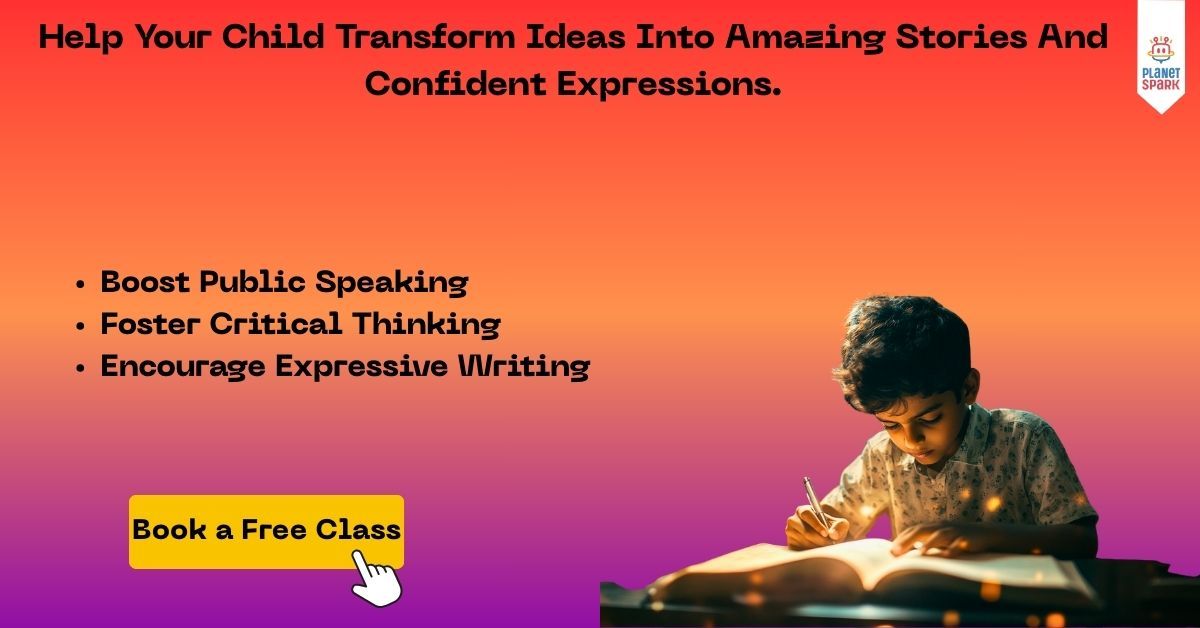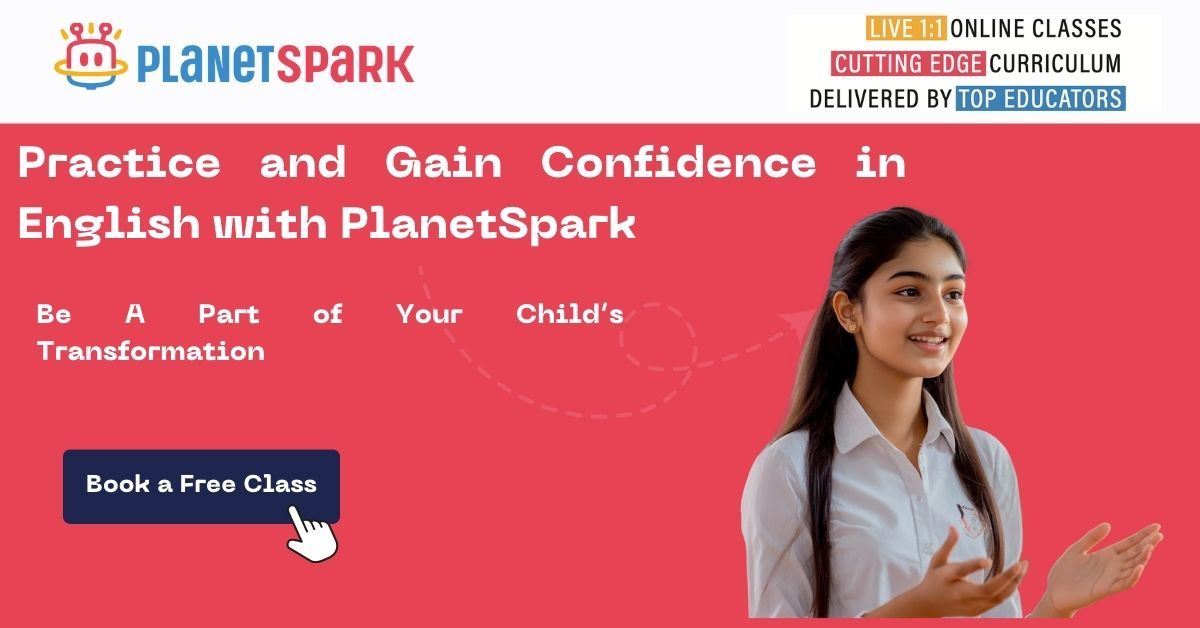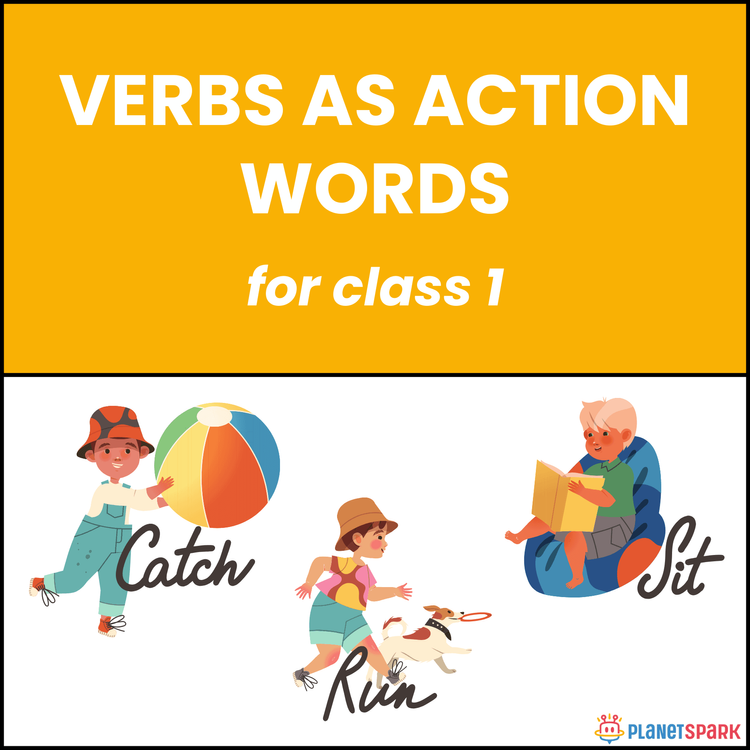Boost Your Skills with Small Stories in English for Learning

Learning English can feel challenging, especially for young learners or beginners.Short stories are perfect for practicing vocabulary, grammar, and comprehension without feeling overwhelmed. They are also great for understanding cultural contexts, idiomatic expressions, and conversational English. Whether you are a student, a parent, or an educator, using short stories can make learning engaging and effective from day one.
This blog gives an amazing ways to develop writing habits in kids and explains how PlanetSpark’s Learning English course complements this journey by enhancing reading, speaking, and comprehension skills together.
5 Short Stories for Intermediate Learners
Short stories come in different styles to suit various learning needs:
Short stories come in different styles to suit various learning needs. Each type focuses on building specific skills like vocabulary, fluency, comprehension, or conversational English.

1. Real-Life Stories
Stories such as A New Driver's License or The Painters depict everyday situations that students can relate to. These narratives introduce practical English phrases, sentences, and expressions that are commonly used in daily life. Learners also develop a better understanding of social interactions and problem-solving in real-world contexts.
2. Dialogue-Based Stories
Stories like Headache or Quitting are centered around conversations between characters. These help students improve speaking skills, understand natural expressions, and learn how dialogue flows in English. Practicing these stories also trains learners to respond appropriately in real-life conversations.
3. Moral Stories
Stories such as The Honest Woodcutter or The Greedy Dog teach valuable lessons like honesty, kindness, and perseverance. Alongside language learning, these stories help students reflect on human values and ethical decision-making. They also use simple yet expressive language that is easy for learners to understand and practice.
4. Humorous Stories
Stories like The Clever Monkey or A Funny Classroom Incident are funny and engaging. Humor makes learning enjoyable while introducing idiomatic expressions, puns, and playful language. These stories help learners speak naturally and confidently while keeping their interest alive.
5. Adventure or Imaginative Stories
Stories such as The Secret Garden or The Lost Treasure spark imagination while introducing descriptive language, new vocabulary, and complex sentence structures. These narratives encourage learners to think creatively, describe scenes vividly, and use English to narrate experiences and adventures.
Why Small Stories Work for Learning English
Short stories are compact, making them perfect for learners who struggle with long texts. They allow readers to:
Learn new vocabulary naturally within context – Short stories introduce learners to new words in an easy and natural way. Instead of memorizing lists, they see words used in sentences, dialogues, and situations. This helps them understand the meaning clearly and remember it for longer. They also learn how and when to use the words correctly.
Improve reading comprehension in small, manageable portions – Because short stories are compact, learners can read them without feeling overwhelmed. They can focus on one part at a time and still understand the whole story. This step-by-step reading builds comprehension skills gradually. Over time, students become better at understanding longer texts too.
Understand sentence structure and grammar intuitively – By reading different short stories, learners see how sentences are formed and how grammar rules are applied. They pick up correct patterns of writing without needing too many technical explanations. The natural flow of stories makes grammar learning more engaging and less stressful.
Gain confidence to speak and write in English – Short stories encourage learners to retell, summarize, or even write their own versions. This practice improves both speaking and writing fluency. When students understand and use the language correctly, they start feeling more confident. Gradually, English becomes easier and more enjoyable for them.
For example, stories like The Key or Food Poisoning use simple, real-life situations that learners can relate to. By reading these, students absorb phrases like “I forgot my key” or “He feels exhausted” without rote memorization.

How to Use Small Stories Effectively
The key to learning from short stories is not to rush. Start by skimming the story, then read it aloud. Check the key vocabulary section and reread the story slowly. Focus on understanding the meaning from context rather than translating every word. Over time, learners build an intuitive understanding of English usage, dialogue, and flow.
Stories like The Neighbor or World Traveler introduce cultural aspects, helping learners understand how language works in different situations. Reading aloud also improves pronunciation and fluency, making learners confident in both speaking and comprehension.
Make Your English Learning Fun and Engaging
At Planetspark, we focus on helping children learn English through interactive methods, including storytelling. Our platform combines live classes with story-based lessons to improve reading, speaking, and comprehension skills. By using stories like those above, learners not only build vocabulary but also practice forming sentences and engaging in conversations naturally.
Planetspark teaches children through personalized sessions, ensuring every learner progresses at their own pace. Our trained mentors guide students with reading exercises, comprehension questions, and practical speaking tasks based on short stories. This makes learning English enjoyable, practical, and highly effective.
Tips for Parents and Educators
Encourage children to read at least one story daily.
Discuss new words and phrases after each story.
Use comprehension questions to reinforce learning.
Combine storytelling with writing exercises to enhance grammar and sentence formation.
At Planetspark, we provide curated short stories for learners, along with worksheets, activities, and quizzes. Our framework ensures children not only read but also internalize and use English confidently.
Benefits of Reading Small Stories
Reading small stories in English for learning provides multiple benefits:
Builds vocabulary gradually without pressure – Small stories introduce new words in simple contexts, making it easy for learners to remember and use them naturally.
Improves listening and speaking skills when combined with reading aloud – Reading aloud helps with pronunciation, clarity, and confidence in speaking while also sharpening listening skills.
Helps learners understand cultural nuances – Stories often reflect traditions, lifestyles, and values, giving learners insight into different cultures and ways of thinking.
Encourages self-study habits among children and beginners – Short, easy stories motivate learners to read on their own, making study enjoyable and building independence.
Stories like Hobby Chef or Swimming teach not only language but also practical skills and cultural practices, keeping learners engaged and motivated.
How Planetspark Supports Continuous Learning
Planetspark integrates storytelling with:

Interactive quizzes to test comprehension.
Vocabulary exercises based on each story.
Speaking practice with trained mentors.
Personalized feedback for every student.
This combination ensures learners progress steadily while enjoying every lesson.
Conclusion
Reading small stories in English for learning is one of the most effective and enjoyable ways to improve language skills. Short stories help learners build vocabulary, enhance comprehension, and practice speaking in real-life contexts without feeling overwhelmed. By combining reading with exercises, dialogues, and interactive activities, children and beginners can steadily gain confidence in English. One of the easiest and most enjoyable ways to improve English skills is by reading small stories in English for learning.
Platforms like Planetspark make this process even more engaging by offering story-based lessons, personalized guidance, and live practice sessions. With consistent reading and active learning, English becomes not just a subject to study but a skill to use confidently every day.
Frequently Asked Questions
Planetspark is ideal for children aged 6 to 18 years.
Yes, small stories are perfect for beginners to learn vocabulary and grammar gradually.
Stories provide context, making it easier to learn words, sentences, and natural expressions.
All classes are live and online, offering convenience and flexibility for learners.
Yes, Planetspark provides detailed progress reports and personalized guidance.
No, even beginners can start with simple stories and build skills step by step.
Download Free Worksheets
Personalized Communication Report
Record a video to get a AI generated personalized communication report for your child

Hi There, want to try these
tips for your child with
LIVE with our expert coach?
Let's check your child's
English fluency

